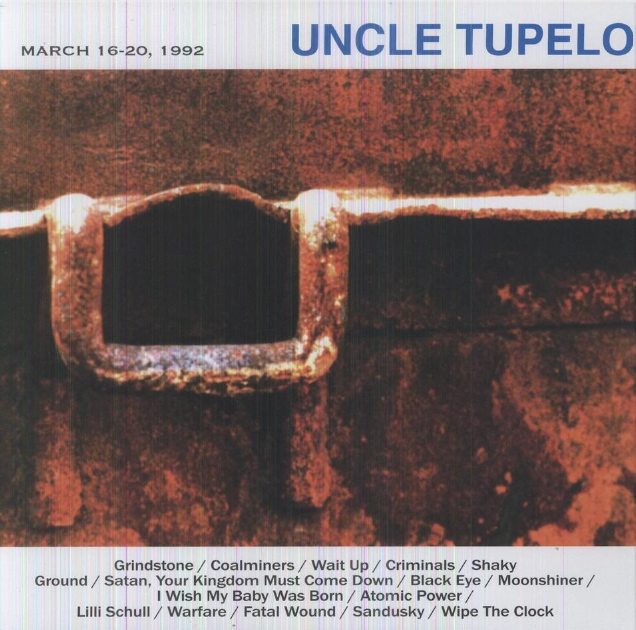Uncle Tupelo — March 16–20, 1992
23 April 2020
Uncle Tupelo
March 16–20, 1992
1992
For me, Uncle Tupelo is the very rock and roll definition of “the sum is greater than the parts.”
As just a three-piece, Jay Farrar, Mike Heidorn, and Jeff Tweedy trimmed down some of what The Band did and created a sound that was uniquely their own.
March 16–20, 1992 was the trio’s third album and was recorded in Atlanta, produced by Peter Buck, then living in the peak R.E.M.-era.
At the time, Uncle Tupelo was being courted by larger labels (eventually signing to Sire Records) and allegedly pitched to sound more like Nirvana. The band wanted no part of that so while the album may sound like an homage to American roots/folk music, it was recorded as more of cranky antidote to the then-burgeoning grunge scene.
If you’re wondering how long it took to record, just look at the title…that’s what it refers to.
Both Tweedy and Farrar contribute originals sandwiched in-between folk songs. Almost more than any other album of theirs, March 16–20, 1992 is a true amalgam of all their influences. Further proof can be found on the 2003 re-issue which includes a cover of The Stooges “I Wanna Be Your Dog” and the theme song to the television show The Waltons.
By this the third album, the two lyricists had found their true voices. Tweedy had begun embracing a more emotional lyricism he was discovering in albums like Nick Drake’s Pink Moon (“Wait Up”) and Farrar firmly embedded one foot in punk and the other in American roots music (“Criminals”). This album had each songwriter maturing, solidifying their style and expanding their reach lyrically.
Some felt March 16–20, 1992 was ridiculous to listen to these guys from suburbia singing about the strife of coalminers (“Coalminers”), and others felt it was a nice nod to the music of a bygone era (“Moonshiner”). But like so many records, success can often be found in the sales numbers and this record outsold their previous two albums (No Depression and Still Feel Gone) combined.
Not surprisingly, over time, once dismissive critics have come to embrace March 16–20, 1992.
For me, this is the most fluid Uncle Tupelo album. While Jay Farrar and Jeff Tweedy wrote different types of songs, it’s less obvious on this album. On the previous records, there is a very clear distinction between songwriters. Perhaps it’s the songs that lay in between their shadows the distinguishing marks of the songwriters. It also helps that the originals here have a maturity the previous records two lack.
After signing to Sire Records, the band recorded Anodyne and imploded, naturally. Jay Farrar would go on to form Son Volt and Jeff Tweedy would form Wilco. Both bands have their high marks, but neither achieve the kind of chemistry or sound that they did on the four albums in their catalog.
While their whole catalog is amazing and I shudder to think what they may have accomplished. However, for my money, it’s March 16–20, 1992 that’s the most consistently excellent Uncle Tupelo album.




